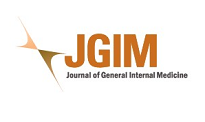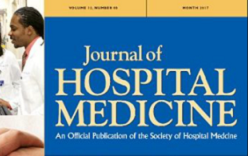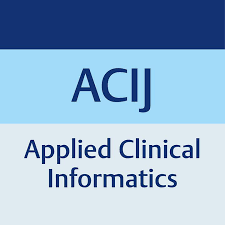Publications
-

IHQSE Team Develops Intervention to Reduce Unnecessary PT ConsultsOpens in a new window
Dec 1, 2023Physical therapy (PT) in inpatient settings is a limited and valuable resource. Inappropriate PT consultation is costly and can lead to delays in care and discharge planning. A team of IHQSE alumni, including faculty members, Dr. Emily Gottenborg and Dr. Moksha Patel, dug into the root causes of unnecessary PT consultations and deployed an intervention that reduced the rate of inappropriate PT consults to less than 10%.Opens in a new window Full story -

Understanding and Reducing Harm from Diagnostic ErrorsOpens in a new window
Oct 7, 2023Few hospitals have created surveillance programs for diagnostic errors. Fewer have programs to translate those opportunities into improvement efforts to prevent future harm. IHQSE faculty Drs. Katie Raffel and Jeff Glasheen are part of the ADEPT working group funded through an AHRQ grant to build such a program. In this paper the authors share the methodology for building the surveillance program, creating the benchmarking dashboards, understanding the areas of opportunity, and building interventions. The program is live in 16 US hospitals.Opens in a new window Full story -

Addressing Adolescent Suicidality in Pediatric Primary CareOpens in a new window
Sep 26, 2023A recent study by IHQSE alumna Jessica Kenny, PhD found that 7% of adolescents endorsed suicidal ideation (SI) in the most recent two weeks during a primary care visit. Multiple interventions were associated with reductions in SI frequency at a follow-up visit, including PCP referral to integrated behavioral health and family navigators, behavioral health providers conducting a risk assessment, completing a safety plan, involving caregivers, sending the adolescent to the emergency department when indicated, and referring to family navigators. The findings from this study support screening for SI and highlight specific multidisciplinary and family-centered interventions and recommendations to address adolescent endorsement of SI in pediatric primary care settings.Opens in a new window Full story -

Gestating Healthy Policies for Young ParentsOpens in a new window
Aug 3, 2023Recent IHQSE graduate Shannon Acker, MD, was an author on an article published by JAMA advocating for better support systems for trainees during pregnancy and early parenthood. In addition to new policies from the Accreditation Council for Graduate Medical Education, Dr. Acker and her colleague emphasize the importance of a cultural shift and a comprehensive network of support for your parents.Opens in a new window Full story -

Lack of Time and Resources Pose Challenges to QI EffortsOpens in a new window
Aug 1, 2023IHQSE Alumna Diane Christopher, MD, was the lead author on a study investigating the current state of quality and patient safety (QPS) efforts in OB/GYN departments in the U.S. Dr. Christopher and her colleagues found that while departments leaders responded overwhelmingly positively regarding work to improve patient safety, most QPS committee leaders received neither protected time nor financial support, and formal training was required in less that one-third of the departments. The study also found that most departments monitored key performance indicators (KPI) for inpatient outcomes, but only half tracked outpatient KPI. Dr. Christopher and her colleagues concluded that OB/GYN departments should invest more resources in QPS efforts to fully realize the benefits to providers, patients, and hospitals.Opens in a new window Full story -

Examining Diagnostic Error During COVID-19 PandemicOpens in a new window
Jun 1, 2023The early COVID-19 pandemic created substantial disruption to healthcare delivery, including changes to diagnostic processes. In this 8-center retrospective cohort study of diagnostic error among patients hospitalized with possible COVID-19, IHQSE Faculty Member Dr. Katie Raffel found that 14% of the 257 patients included experienced delayed, missed or wrong diagnosis, 1/3 of which may have led to harm. Unexpectedly, diagnostic process faults related to policies/procedures related to COVID-19 suspicion itself (such as need for isolation or medical distancing) were not independently associated with error. Instead, diagnostic process faults related to clinical assessment and test ordering/interpretation remained most prominent, similar to other studies of the diagnostic process.Opens in a new window Full story -

Early lessons from the Utility of Predictive Systems in Diagnostic Errors (UPSIDE) studyOpens in a new window
May 21, 2023Diagnostic errors (DE) are a critical but understudied cause of preventable patient harm. While much work has focused on examining the incidence and factors contributing to DEs in ambulatory and emergency room settings, fewer studies have examined the incidence of DEs in hospitals or how they contribute to adverse events during the hospital encounter. IHQSE Faculty, Dr. Katie Raffel, along with other experts on diagnostic error, led an AHRQ-funded study at 31 US hospitals aimed at defining the prevalence and underlying causes of DEs in patients who die in the hospital or are transferred to the ICU after the first 48 hours.Opens in a new window Full story -

Take Your PICC: IHQSE Faculty Develops Support Tool to Improve Appropriate Catheter UsageOpens in a new window
Apr 13, 2023Peripherally inserted central catheters (PICCs) provide reliable central vascular access for hospitalized patients, but PICCs are associated with morbid and potentially lethal complications. To curb these outcomes, IHQSE Faculty Dr. Tyler Anstett and team developed a decision support tool in the EHR to help hospital-based providers utilize more appropriate catheter devices for their patients.Opens in a new window Full story -

A Nudge in the Right Direction: IHQSE Faculty Member Engages Clinicians to Rethink EHR DesignOpens in a new window
Jan 14, 2023The transfusion of blood is a life-saving measure but is sometimes overused leading to worse outcomes for patients and excess costs for health systems. A team including IHQSE Faculty member Dr. Tyler Anstett engaged clinicians from different specialties to rethink the design of blood transfusion orders in the EHR at University of Colorado Hospital.Opens in a new window Full story -

IHQSE Alum Publishes Study to Address Antimicrobial Over-Prescribing for Mechanically Ventilated PatientsOpens in a new window
Oct 11, 2022Andrea Prinzi, Ph.D., MPH, a member of the 2020 cohort of the IHQSE Certificate Training Program published their work in the Journal of Clinical Microbiology, showing that endotracheal aspirate cultures commonly overreport lower respiratory tract infections due to contamination, often resulting in excess antimicrobial therapy.Opens in a new window Full story